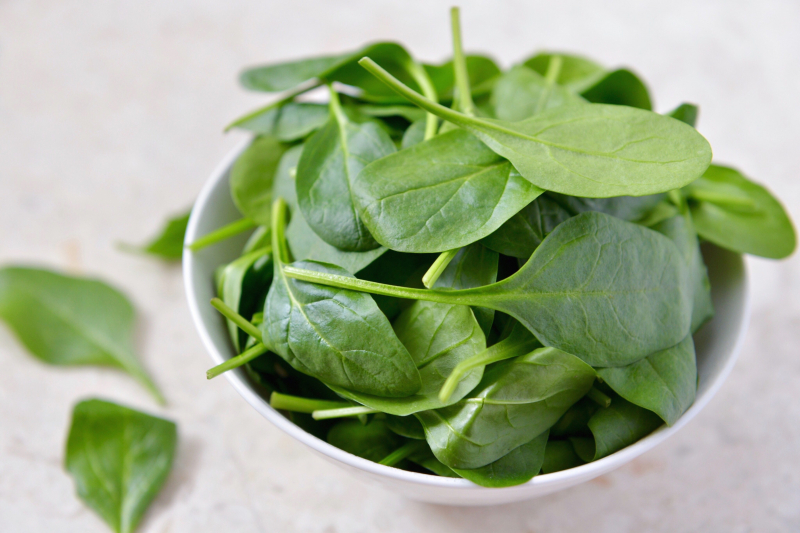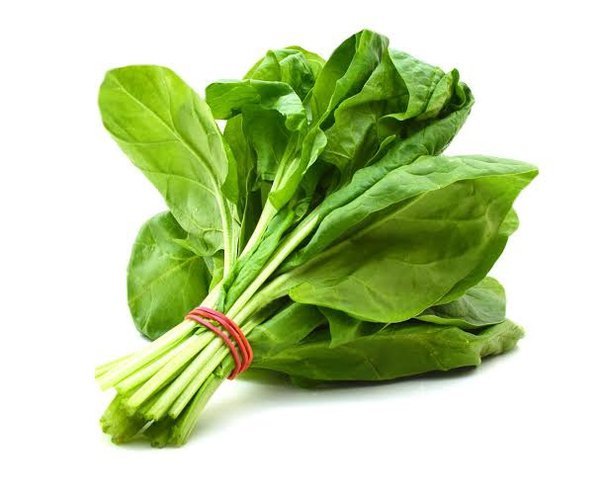Spinach

Spinach (Spinacia oleracea) is a blooming plant with a leafy green color that is native to Central and Western Asia. It is a part of the Caryophyllales order, the Amaranthaceae family, and the Chenopodioideae subfamily. Its leaves are a typical edible vegetable that can be eaten fresh or after being preserved via canning, freezing, or drying procedures. It can be eaten cooked or raw, and the taste is somewhat different; steaming can help to lessen the high oxalate level.
Each 100g serving of raw spinach contains 483 mcg of vitamin K1 or 402 percent of the daily value (DV) for the body. A half-cup of cooked spinach has around three times the vitamin K content of a cup of raw spinach, yet one raw serving is still enough for one day. As a result, those taking the anticoagulant warfarin (which works by suppressing vitamin K) are advised to limit their consumption of spinach (and other dark green leafy vegetables) to avoid warfarin's impact being blunted.
Vitamins, minerals, and antioxidants abound in spinach. Spinach is high in iron, vitamin C, and vitamin A, all of which aid the body to become more resistant. Vitamin K and calcium are also present, which are beneficial to the bones and teeth. This vegetable is also high in omega 3, which is beneficial to the nervous system.











